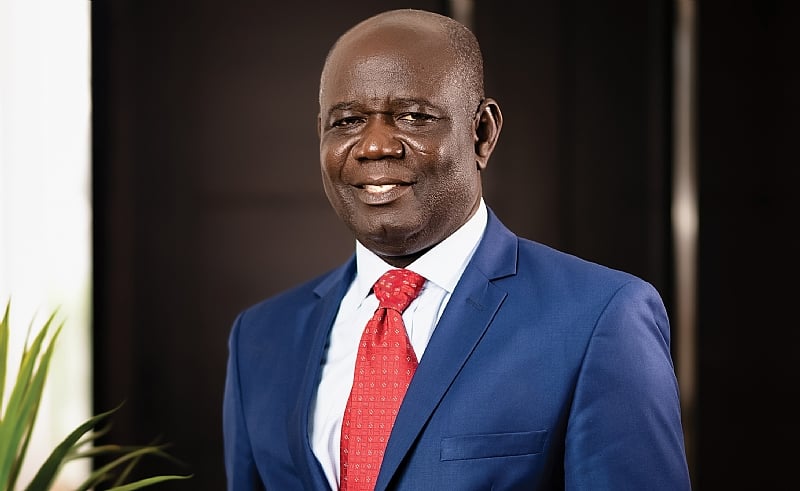Ghana’s educational infrastructure faces a critical funding challenge, heavily reliant on the Ghana Education Trust Fund (GETFund), a situation deemed unsustainable by GETFund Administrator, Mr. Paul Adjei. Speaking at the National Education Forum in Ho, he emphasized the urgent need to diversify funding sources to meet the growing demands of the education sector. This call for innovation extends beyond government reliance and embraces a multi-stakeholder approach, involving the private sector, local communities, the Ghanaian diaspora, philanthropic organizations, and international development partners. This collaborative effort aims to create a sustainable financial ecosystem that can support the construction, ongoing maintenance, and effective management of educational facilities across all levels of learning, from primary schools to tertiary institutions. The forum’s focus on transforming education recognizes the vital role infrastructure plays in providing a conducive learning environment and fostering quality education for future generations.
Mr. Adjei’s presentation, “Government and Stakeholder Partnerships in School Infrastructure Development in Ghana,” underscored the necessity of exploring pragmatic solutions to optimize resource utilization and expedite project completion. Among the proposed strategies was the adoption of high-quality prefabricated materials in construction. This approach offers a dual advantage: reducing project costs and significantly shortening construction timelines. Prefabricated materials offer a standardized and readily available solution, mitigating potential delays associated with traditional construction methods. This efficiency can translate into quicker access to new educational facilities, alleviating overcrowding and pressure on existing infrastructure. The emphasis on practicality reflects the urgency of addressing the infrastructure gap and ensuring that resources are deployed effectively to maximize impact.
The principle of community ownership and participation emerged as a crucial theme in managing and maintaining educational facilities. Engaging local communities fosters a sense of responsibility and shared investment in the upkeep of these valuable assets. Local involvement can lead to more sustainable maintenance practices, ensuring longevity and preventing deterioration. This approach also strengthens the link between schools and their surrounding communities, promoting a sense of collective responsibility for the success of educational institutions. This decentralized approach to facility management aims to alleviate the burden on centralized authorities and empower local communities to take ownership of their educational infrastructure.
A phased approach to large-scale infrastructure projects, particularly at the tertiary level, was advocated for to allow for partial utilization of facilities even before full completion. This pragmatic strategy optimizes resource use and allows institutions to begin operations incrementally, minimizing disruption and maximizing the benefits of completed sections. This staged approach not only ensures quicker access to vital learning spaces but also provides flexibility in managing project timelines and budgets. By prioritizing the completion of essential components, institutions can begin offering programmes and services while subsequent phases continue to be developed. This adaptive model aligns with the forum’s focus on sustainable solutions tailored to the specific needs of educational institutions.
President John D. Mahama, launching the National Education Forum, themed “Transforming Education for a Sustainable Future,” emphasized the national importance of this collective endeavor. His call for active participation from all Ghanaians underscores the significance of a collaborative approach to shaping the future of education. The forum, hosted in the Volta Region, provided a platform for dialogue and collaboration among key stakeholders, including government officials, educators, and community representatives. The president’s endorsement highlighted the priority placed on education as a driver of national development and a cornerstone for a prosperous future. The forum’s theme reflects the long-term perspective of investing in education and building a resilient educational system that can adapt to future challenges.
The breakout session dedicated to infrastructure development, chaired by Prof. Samuel Attintono, Principal of Accra College of Education, and moderated by esteemed educationists Prof. Mohammed Salifu and Mr. Kwame Azu, further solidified the commitment to addressing this critical challenge. The presence of experienced professionals in the education sector provided invaluable insights and helped shape the discussions towards concrete and actionable solutions. The structured forum format, incorporating breakout sessions, facilitated focused discussions and encouraged in-depth exploration of specific issues. The collective expertise and shared commitment of the participants contributed to the development of practical strategies for sustainable infrastructure development in Ghana’s education sector. The forum’s emphasis on stakeholder engagement and collaborative problem-solving reflects a forward-thinking approach to building a robust and adaptable education system capable of meeting the needs of a dynamic future.


